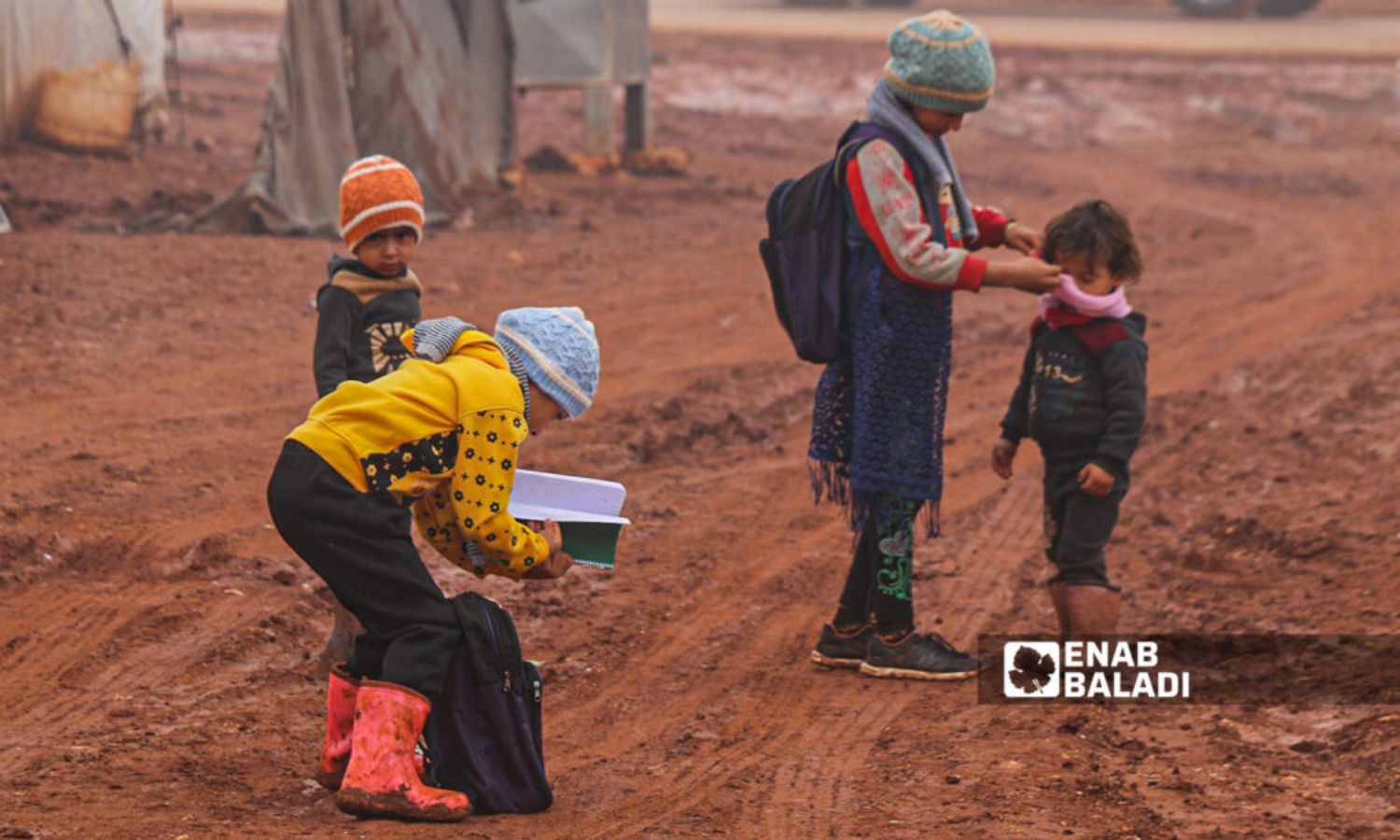



Teacher Abdul Rahman al-Khadr flips through the school curriculum, trying to find a way to explain lessons to students the next day, hoping to convey the information by relying on the imagination of the students instead of depending on the essential educational tools that are absent from schools in Idlib.
Models and other educational tools save time and effort, and provide students with a larger scientific capacity, according to al-Khadr, a first-grade teacher who has been working in Idlib schools for eight years.
Educational tools such as maps, models, magnifying glasses, and math counters are crucial and essential resources that should be available in schools, and teachers use them to convey information to students in a practical manner.
Al-Khadr told Enab Baladi that some students can envision concepts, but others cannot reach the correct understanding, which forces the teacher to rely on verbal explanations, thus requiring more time to convey the information.
The best way to teach students in the early years is through play, as children love to use their different senses, such as touch and sight, which helps utilize their curiosity to consolidate information, according to al-Khadr.
The school curricula approved by the Ministry of Education assume the presence of many tools that teachers should use during lessons. The absence of these tools hinders the process of explaining lessons and conveying information to students, thus making the lesson require more time than scheduled in the curriculum and requiring greater effort from the teacher.
Some lessons include a story that students must listen to and then answer a listening question. Due to the lack of loudspeakers, the teacher has to read the story to the students, which burdens the teacher with preparation time and prolongs the lesson.
On her part, teacher Hind al-Sayed stated that teachers are forced to allocate part of their salaries to purchase boards on which they draw plans or illustrations to compensate for the shortage of supplies in schools.
The salary of a teacher is, at best, $150, a small amount that is insufficient for teachers amid high prices in northern Syria. “Allocating portions of income to compensate for the shortage of supplies increases the material burden on teachers,” al-Sayed mentioned to Enab Baladi.
The Secretary of Hanano School for early education in Idlib, Ahmed Amin, explained to Enab Baladi that most schools lack “logistics,” such as skeletons, globes, and charts that the school curricula assume should be present in schools.
For his part, Yusuf al-Qadi, the Assistant Director of Hanano School, asserted that supplies are critical to combine theoretical and practical teaching methods.
Al-Qadi added to Enab Baladi that he informs educational supervisors who visit the school about this lack, and they in turn notify the ministry about the necessity to secure these supplies.
Educational tools are considered one of the basic needs of schools, and some schools lack them while others have them. Those that do not have the tools compensate for their shortage by displaying lessons on projection devices, according to Ammar Awad, the Director of Educational Guidance in Idlib’s Education Directorate.
Within the curriculum circle in Idlib, a list of necessary supplies has been prepared for securing educational tools, and any donor can obtain details of the tools to equip schools, according to what the Educational Guidance Director told Enab Baladi.
Awad mentioned that the priorities at this stage are to secure books for first-grade students, then for second-grade students, as there are 550,000 students in urgent need of books. He pointed out that several donors have made promises, but no copies have been delivered so far.
The educational reality in Idlib faces many obstacles and challenges, foremost among them the absence of a learning environment for students, the cessation of support for many first-grade schools, the complete halt of support for second-grade and secondary schools, and the inability to accommodate the increasing number of students.
The challenges of the educational reality force teachers to work voluntarily and compel schools to gather a large number of students in one classroom.
The Director of Education in Idlib, Ahmed al-Hassan, stated to Enab Baladi earlier that the shortage of school books is a result of no project being adopted for books by any entity.
He added that several organizations used to provide books for students for free, but they were not sufficient to meet the required need. However, this year, no entity has provided support due to the lack of inclusion of the printing of school books in the school sponsorship projects.
Meanwhile, organizations and activists in the area are attempting to launch initiatives to secure books, including the “Our Students Are a Trust” initiative, which aims to provide textbooks for around 1,000 students in the Jabal al-Zawiya area of southern Idlib.
Additionally, the Violet organization, working in northwestern Syria, distributed schoolbooks in Idlib city and its countryside after launching an initiative targeting more than 2,000 students.
if you think the article contain wrong information or you have additional details Send Correction